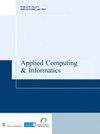基于OpenMP的双并行分区排序分析与优化
IF 4.9
Q1 COMPUTER SCIENCE, INFORMATION SYSTEMS
引用次数: 1
摘要
目的排序是计算机科学中解决问题的一种重要算法。最著名的分治排序算法是快速排序。它首先将数据划分为子数组,最后对它们进行排序。本文对双并行分区排序(Dual Parallel Partition Sorting, DPPSort)算法进行了分析和优化。它由一个名为Dual Parallel Partition (DPPartition)的分区算法组成。本文对DPPartition进行了分析和优化,并使用标准排序函数qsort和STLSort进行排序,这两个函数分别是快速排序算法和内向排序算法。该算法可在任何共享内存/多核系统上运行。为了兼容C/ c++标准库功能,开发了支持多进程编程的OpenMP库。作者的算法与Lomuto的分区和合并并行,递归地将未排序的数组平分为两半,而不需要比较和交换指令。然后,在子数组小于排序截止时并行执行qsort/STLSort。在作者的实验中,实现了4核Intel i7-6770和Ubuntu Linux系统。DPPSort比qsort和STLSort在Uint64随机分布上分别快6.82×和5.88×。作者可以通过减少算法中的比较-交换指令来提高并行排序算法的性能。这个概念可以用来开发相关的问题,以提高算法的加速。本文章由计算机程序翻译,如有差异,请以英文原文为准。
Analysis and optimization of Dual Parallel Partition Sorting with OpenMP
PurposeSorting is a very important algorithm to solve problems in computer science. The most well-known divide and conquer sorting algorithm is quicksort. It starts with dividing the data into subarrays and finally sorting them.Design/methodology/approachIn this paper, the algorithm named Dual Parallel Partition Sorting (DPPSort) is analyzed and optimized. It consists of a partitioning algorithm named Dual Parallel Partition (DPPartition). The DPPartition is analyzed and optimized in this paper and sorted with standard sorting functions named qsort and STLSort which are quicksort, and introsort algorithms, respectively. This algorithm is run on any shared memory/multicore systems. OpenMP library which supports multiprocessing programming is developed to be compatible with C/C++ standard library function. The authors’ algorithm recursively divides an unsorted array into two halves equally in parallel with Lomuto's partitioning and merge without compare-and-swap instructions. Then, qsort/STLSort is executed in parallel while the subarray is smaller than the sorting cutoff.FindingsIn the authors’ experiments, the 4-core Intel i7-6770 with Ubuntu Linux system is implemented. DPPSort is faster than qsort and STLSort up to 6.82× and 5.88× on Uint64 random distributions, respectively.Originality/valueThe authors can improve the performance of the parallel sorting algorithm by reducing the compare-and-swap instructions in the algorithm. This concept can be used to develop related problems to increase speedup of algorithms.
求助全文
通过发布文献求助,成功后即可免费获取论文全文。
去求助
来源期刊

Applied Computing and Informatics
Computer Science-Information Systems
CiteScore
12.20
自引率
0.00%
发文量
0
审稿时长
39 weeks
期刊介绍:
Applied Computing and Informatics aims to be timely in disseminating leading-edge knowledge to researchers, practitioners and academics whose interest is in the latest developments in applied computing and information systems concepts, strategies, practices, tools and technologies. In particular, the journal encourages research studies that have significant contributions to make to the continuous development and improvement of IT practices in the Kingdom of Saudi Arabia and other countries. By doing so, the journal attempts to bridge the gap between the academic and industrial community, and therefore, welcomes theoretically grounded, methodologically sound research studies that address various IT-related problems and innovations of an applied nature. The journal will serve as a forum for practitioners, researchers, managers and IT policy makers to share their knowledge and experience in the design, development, implementation, management and evaluation of various IT applications. Contributions may deal with, but are not limited to: • Internet and E-Commerce Architecture, Infrastructure, Models, Deployment Strategies and Methodologies. • E-Business and E-Government Adoption. • Mobile Commerce and their Applications. • Applied Telecommunication Networks. • Software Engineering Approaches, Methodologies, Techniques, and Tools. • Applied Data Mining and Warehousing. • Information Strategic Planning and Recourse Management. • Applied Wireless Computing. • Enterprise Resource Planning Systems. • IT Education. • Societal, Cultural, and Ethical Issues of IT. • Policy, Legal and Global Issues of IT. • Enterprise Database Technology.
 求助内容:
求助内容: 应助结果提醒方式:
应助结果提醒方式:


